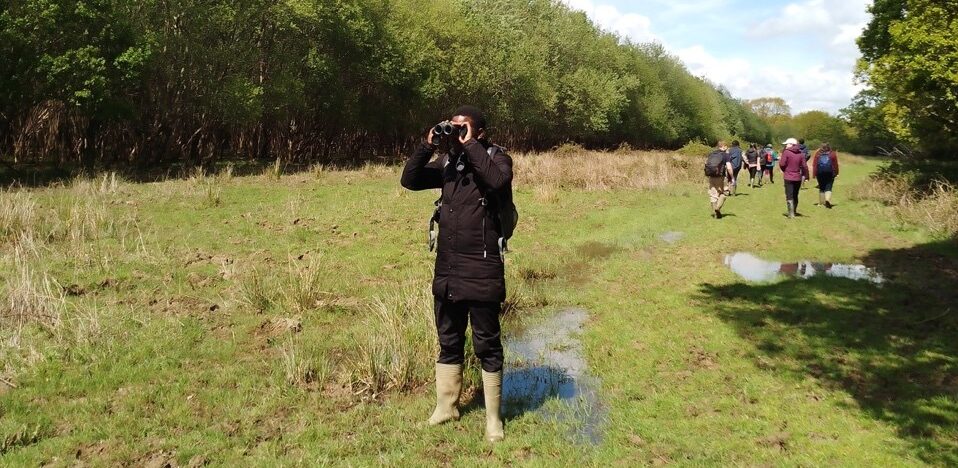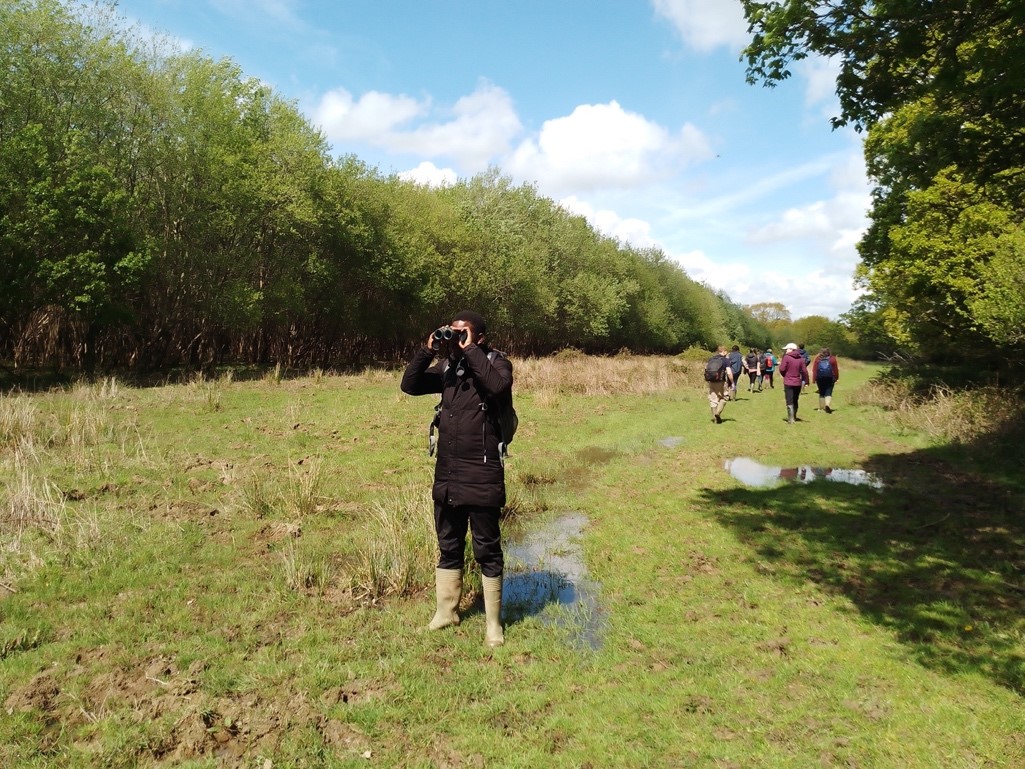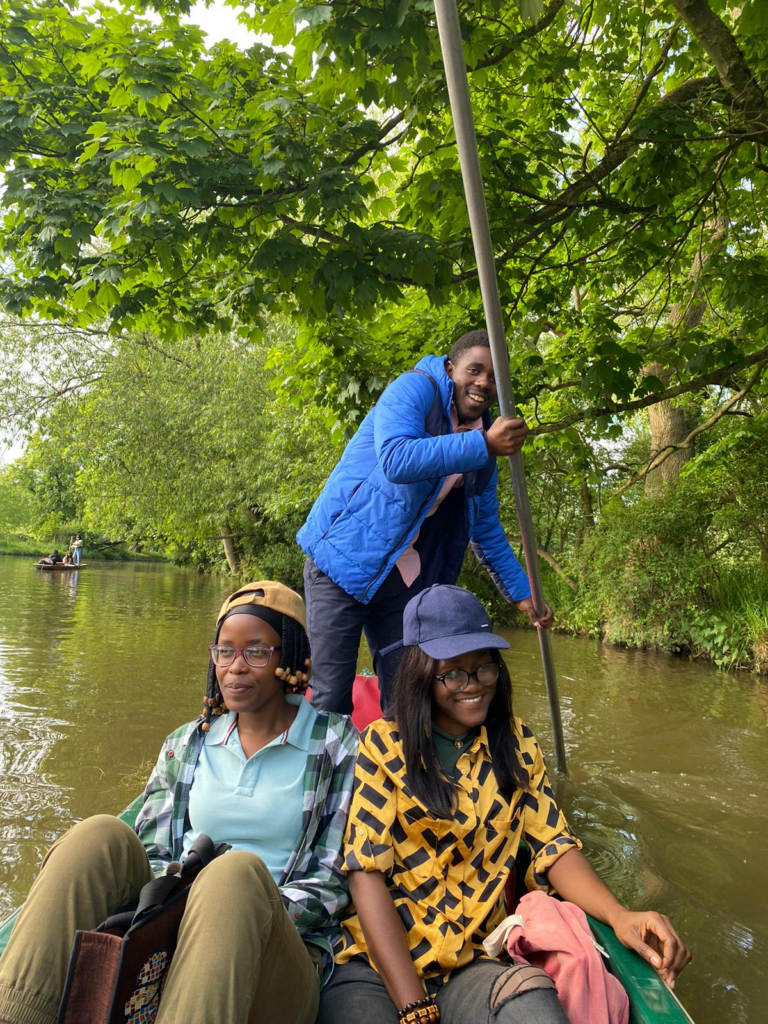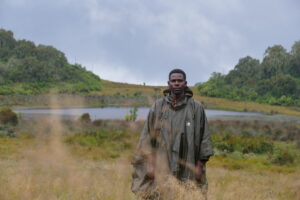University of Oxford
11a Mansfield Rd
OX1 3SZ
UK

On 29th February 2024, I travelled from Rwanda to the United Kingdom. This travel was the first one of the many I look forward to undertaking in the future to broaden the collaboration between the South and the North world. I remember when I saw the announcement about this fellowship, I felt extremely happy to apply as I was expecting to learn new methodological research, expand my network, and improve both my language barrier as well as my communication skills. After long hours of wait, I finally arrived in the UK, welcomed with a little rain and moderate mist which I could relate to my normal working environment in the mountains of gorilla’s habitat. I was very enthusiastic about the different weather conditions and cultures difference I noticed right after landing.
When I arrived in the city of Oxford, I couldn’t believe to see a house built hundreds of years ago still standing firmly. Mostly during my time at Oxford was going to be dedicated to working on my project of building the Predictive models of the future habitat suitability of key food plants and nesting material for mountain gorillas under the supervision of Dr Michael Clark. As I approach the end of my tenure of my fellowship, I gladly appreciate the nice working environment I was working in that helped me to conduct my research so well. The results from this research will soon be published and shared with the world at the Association for Tropical Biology and Conservation conference in Kigali.
Other than working on this project, I have had an opportunity to interact with other scientific communities at Oxford and from around the world coming to conduct their research. I have learned from other sectors other than primates’ conservation like economics, and nature conservation and recovery. This fellowship has offered me an opportunity to attend different interactive talks offered at different colleges mainly at the Leverhulme Centre for Nature Recovery whereby I followed some of them in person and others online.

James presenting at the Leverhulme Centre for Nature Recovery (LCNR)
Furthermore, I have also shared my work about the conservation and protection of mountain gorillas in Rwanda with the rest of the Oxford community. I would not forget to mention different visits I have undertaken in Oxford and around the UK. Some of my lifetime memories are the evensongs at different colleges and the remarkable day of the 1st of May when the Oxford community particularly welcomed spring. This has helped me to broaden my networks and multicultural understanding.
If you come to the UK, you cannot miss visiting the memorable museums harbouring the history of how the world has been evolving from a hundred years ago; something very unlikely to witness in other parts of the world. One the many things you can do as a fellow is also to visit the Zoological Society of London. When I went there, I met seven individual of gorillas including two new baby born gorillas. It was my first time being at the zoo and learning how these animals and many other species are being conserved to save their survival was a remarkable experience to witness. Other than seeing gorillas, I have had a chance to see other animals like bald ibis, parrots, tiger, and penguins.
Moreover, I was able to conduct a study visit at the Knepp rewilding project. This three-hour drive was a game-changing experience as I learned about the role of recreating a home for wildlife from soil that was normally used for agriculture. This ex-farmed land is helping to host different biodiversity from small animals like insects to big animals like pigs, birds, and red and fallow deer. This area is also a home to the dam beavers that have been reintroduction which are helping in the flood management. Additionally, I have learned that Knepp’s impact and story can help the Rwandan community toward achieving its goal of expanding the Volcanoes National Park. I was amazed to see the thriving of the stork birds; that would not be there if the land would still be used as farmland.


I was very happy as well to interact with other A.G. Leventis Fellows who are doing amazing work to protect and conserve the African biodiversity in their countries.

A.G Leventis fellows Eva Johnson Ayaro, Juliana Labiran and James Munyawera punting in Oxford.
I would greatly like to express my gratitude to the ICCS director, Professor E.J. Millner Gulland for her support, advice, and guidance throughout the training, and my supervisor Dr. Michael Clark, for their unseizing support and guidance that helped me to accomplish my goals. The whole ICCS team was a great professional team that I enjoyed working with and exchanging different ideas about how we can make an impact on the world in general. I thank the Dian Fossey Gorilla Fund for having allowed me to experience this immense career-changing experience; and my buddy Thomas White and Lucy Radford for their contribution in helping me to feel at ease during my visit.

